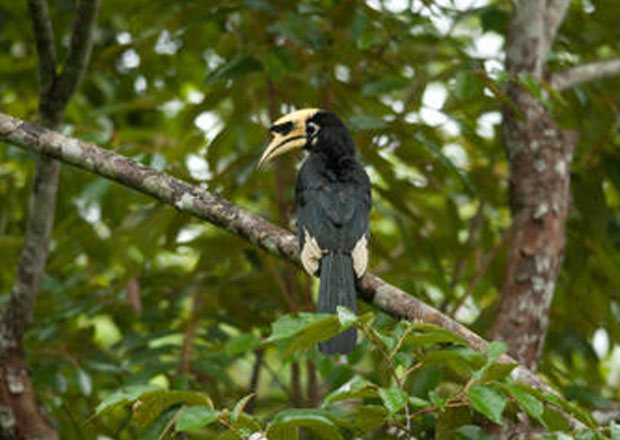
Wetlands - Critical home for fish and wildlife
World Wetlands Day is celebrated on February 2 every year but do you know what wetlands are?
Wetlands are areas of land where water covers the soil.
This could be all-year-round or just certain times of the year.
Wetlands include swamps, marshes, lakes, lagoons, saltmarshes, mudflats, mangroves, coral reefs, bogs and fens.
Advertisement
Wetlands may be natural or artificial and the water within a wetland may be static or flowing, fresh, salty or saline. There are two general categories of wetlands: coastal or tidal wetlands and inland or non-tidal wetlands.
Ramsar sites

The Sakumo Ramsar Site
These are wetlands set aside for conservation because of their international importance. They are managed to provide maximum benefits to the local communities living within and around the area.
In Ghana, there are five designated coastal wetlands, namely Keta Lagoon Complex, Songor, Sakumo, Densu Delta and Muni-Pomadze Ramsar Sites. A sixth one, Owabi Wildlife Sanctuary, near Kumasi is the only inland ramsar site in Ghana.
Sakumo
The Sakumo is located in the West of Tema and comprises an open lagoon and surrounding flood plains. It has high educational and recreational value. It is one of the few open 'green' areas in the Tema area.
Songor
The site is a brackish water lagoon with extensive mudflats and islands, salt pans, a broad sandy beach and flood plains which drains directly into the Songor lagoon. It is the second of most important water bird site on the coast of Ghana.
Muni-Pomadze
This is located in Winneba in the Central Region of Ghana. It is made up of the Muni lagoon, the surrounding flood plains and the adjacent sandy beach on the seafront. It provides feeding or staging habitats for migrating waders (birds commonly found along coastal habitats shorelines) that spend the non-breeding season in Ghana and as roosting site for terns (seabirds).
Keta Lagoon Complex
The Keta lagoon is the largest lagoon in Ghana comprising an open water, surrounding flood plains and mangrove swamps east of the Volta River. It is the most important wetland along the coast of Ghana for waterbirds.
Densu
Other Trending Stories
The site encompasses an open lagoon, salt pans, freshwater marsh and scrub and sand dunes. It is important for species of resident and migratory waterbirds.
Why are wetlands important?
• They protect shores from wave action, prevent flooding, absorb pollutants and improve water quality. Wetlands prevent flooding by holding water much like a sponge. By doing so, wetlands help keep river levels normal and filter and purify the surface water.
• Wetlands accept water during storms and whenever water levels are high. When water levels are low, wetlands slowly release water.
• They also provide home for a variety of animals and plants, supporting plants and animals that are found nowhere else.
• Wetlands provide environmental, social and economic services. Many wetlands are areas of great natural beauty.
• Wetlands also provide important benefits for industry. For example, they form nurseries for fish and other freshwater and marine life.
• Wetlands are the most productive habitats on the planet as they contain a high number of plant and animal species including mammals, bird, fish and invertebrates (animals without a backbone or bony skeleton).
• Wetlands also control erosion.
Wetlands under threat
Despite the fact that wetlands are a critical part of our natural environment and provide great benefits, some of the world’s wetlands are under threat because of human activity. Very often, wetlands are drained and then houses and other buildings are put up on the land which used to house different species of birds, fish and amphibians (animals that live part of their lives in water and part on land).
Protect wetlands
• As young people, it is important that you become environmentally conscious and do your part to protect and preserve the environment.
• You may join programmes or activities that help protect and restore wetlands.
• Report illegal activities such as filling, clearing or dumping in wetlands to the appropriate authorities.
• Pick up litter and dispose off in the appropriate trash bins. Environmentalists also advise that we keep surfaces that wash into storm drains clean of faeces, toxic chemicals, fertilisers and motor oil which eventually wash into wetlands and pollute them.




